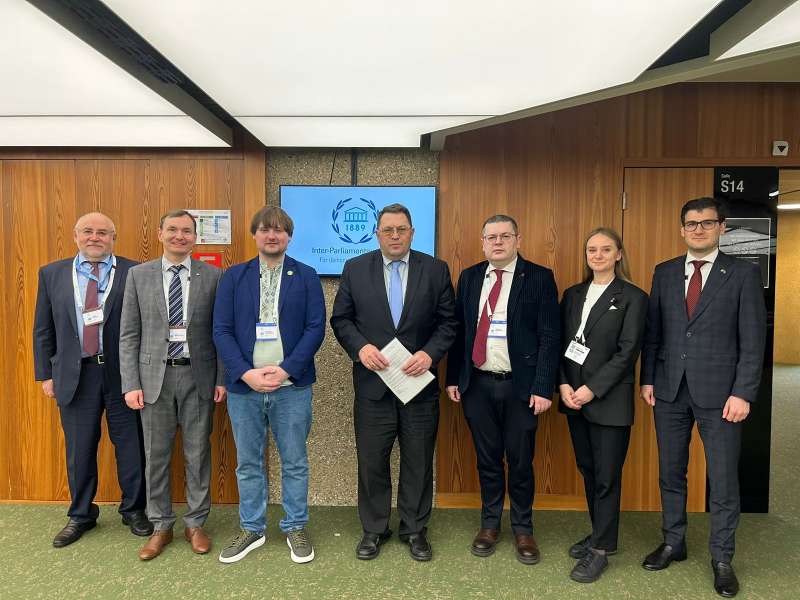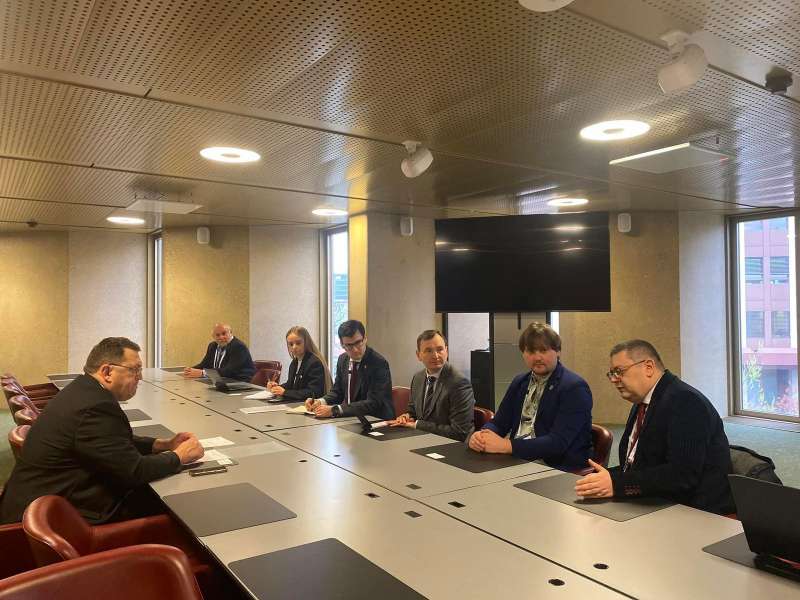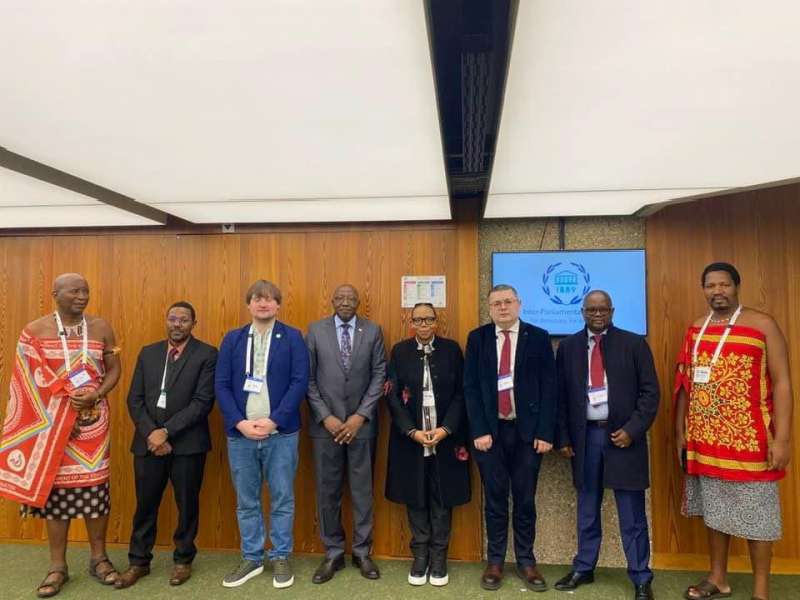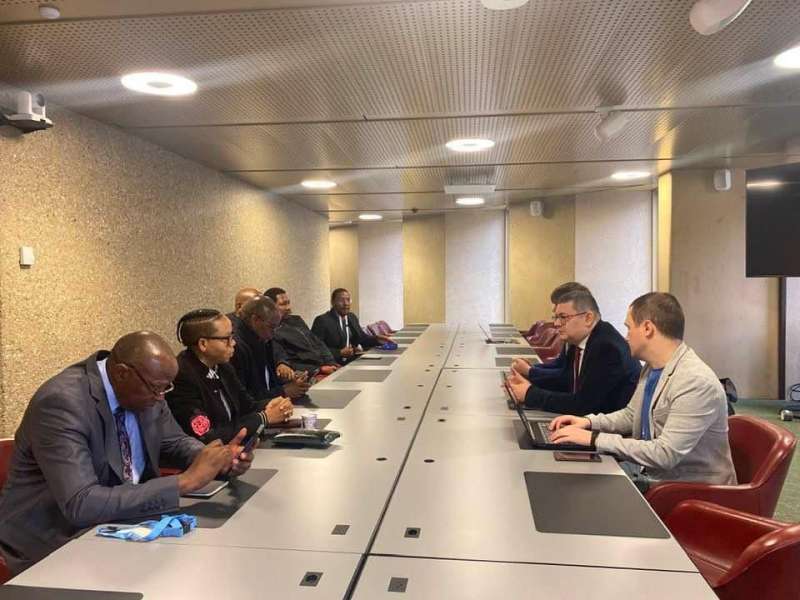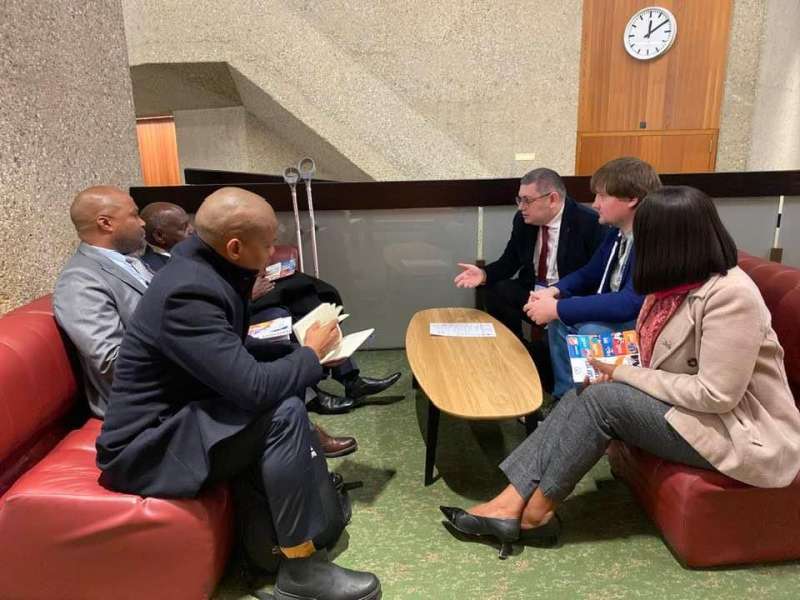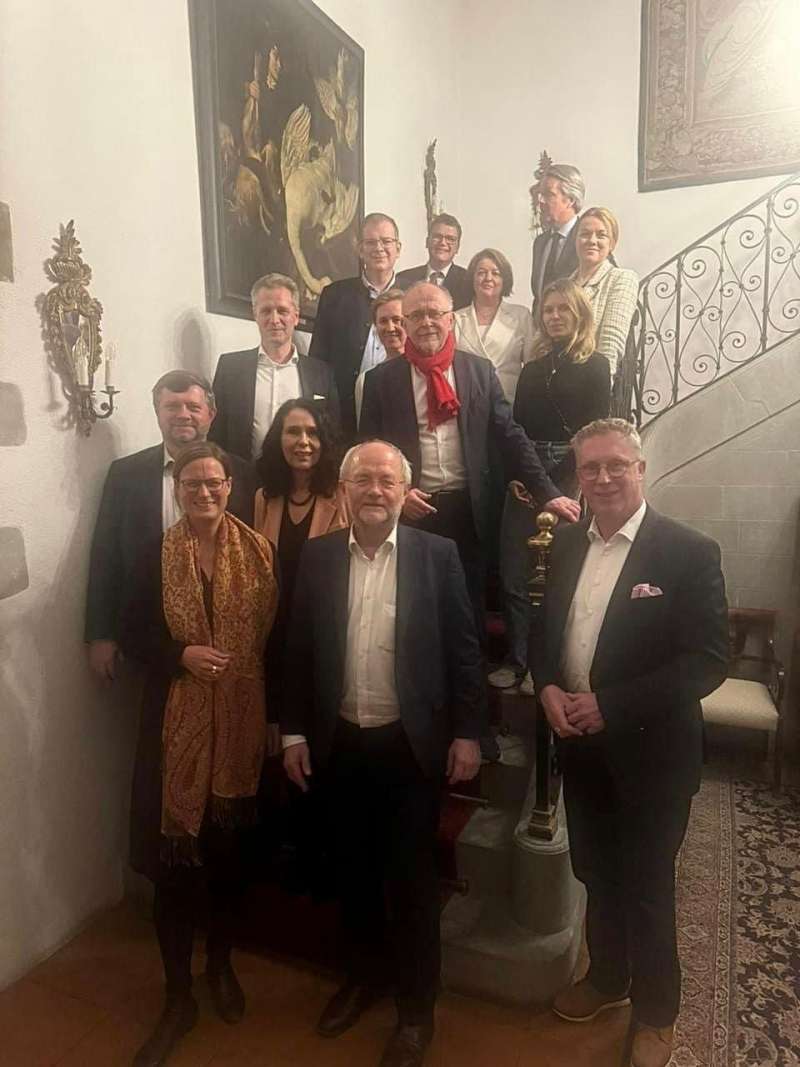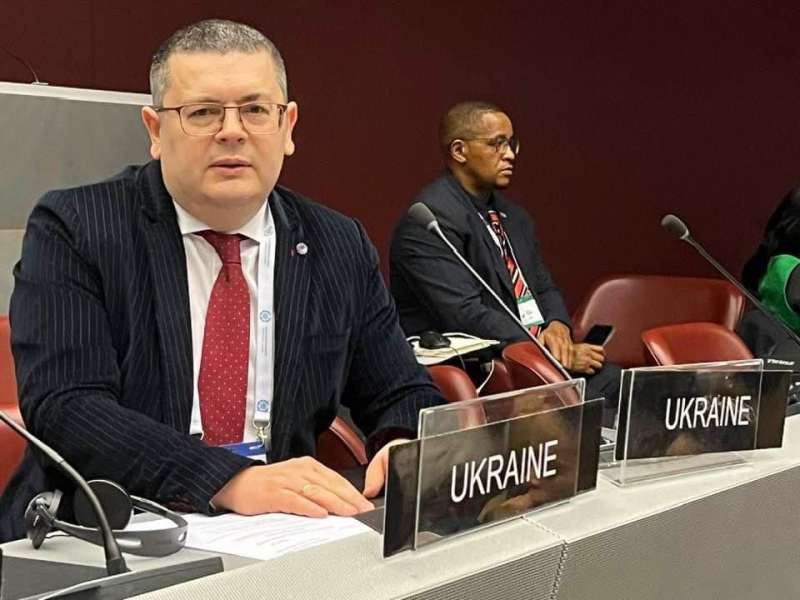On 23-27 March, the Ukrainian delegation headed by the First Deputy Speaker of the Verkhovna Rada of Ukraine Oleksandr Korniienko paid a working visit to the Swiss Confederation.
The programme of the visit primarily included participation of delegates in the 148th Assembly of the Inter-Parliamentary Union.
During the meeting with the Swiss representatives, the Chairman of the Committee on Foreign Policy and Interparliamentary Cooperation, Oleksandr Merezhko, elaborated on the topic of frozen assets of the russian federation, in particular, the importance of freezing them for the transfer to Ukraine. He also thanked Switzerland for the sanctions already imposed on russia, stressing that support for Ukraine is support for international law. In addition, Oleksandr Merezhko asked the Swiss delegates to help Ukraine in de-mining the territories.
Oleksandr Sanchenko, the member of the Committee on Humanitarian and Information Policy, thanked Switzerland for sheltering Ukrainians and called for the recognition of the Holodomor of 1932-1933 as genocide of the Ukrainian people.
Ukrainian delegates also met with representatives of Eswatini. Oleksandr Merezhko stressed the importance of inter-parliamentary cooperation, in particular through the establishment of appropriate friendship groups in parliaments. “Ukraine is currently engaged in a colonial war against russia for the freedom of the Ukrainian people,” he stressed during the meeting, calling on Eswatini to support Ukraine at the United Nations. In addition, Ukrainian delegates invited Eswatini to participate in the Global Peace Summit.
According to Oleksandr Merezhko, Ukrainian delegates discussed issues related to the implementation of the Peace Formula of the President of Ukraine Volodymyr Zelenskyi with the Botswana parliamentary delegation.
In addition, the Ukrainian delegation, led by the First Deputy Chairman of the Verkhovna Rada of Ukraine Oleksandr Korniienko, met with colleagues from Argentina, Spain, Germany, and representatives of international organisations.
The members of the Ukrainian Parliament reported in detail on the situation in Ukraine, including the frontline, missile attacks on cities and civilian infrastructure. The First Deputy Speaker Oleksandr Korniienko focused on the consequences of the shelling of energy facilities. He emphasised the resilience of the Ukrainian people: “Despite everything, everyone continues to live, work, fight and bring victory closer.”
Finally, at the end of the working visit, the Chairman of the Committee on Foreign Policy and Interparliamentary Cooperation, Oleksandr Merezhko, said that the Ukrainian delegates had managed to take part not only in plenary and committee meetings, but also in a large number of bilateral meetings. “It is felt that the general mood of the countries of the Global South is moving towards greater support for Ukraine and a greater understanding of the danger posed by russian aggression to the whole world,” he said.
The Ukrainian delegation also includes members of the Ukrainian Parliament: the Chairman of the Committee on Foreign Policy and Interparliamentary Cooperation Oleksandr Merezhko, the Deputy Chairman of the Committee on Foreign Policy and Interparliamentary Cooperation Arsenii Pushkarenko, the member of the Committee on Foreign Policy and Interparliamentary Cooperation Olha Rudenko, the member of the Committee on Environmental Policy and Nature Management Lesia Vasylenko, the member of the Committee on Anti-Corruption Policy Oleksii Zhmerenetskyi, the member of the Committee on Humanitarian and Information Policy Oleksandr Sanchenko, and the member of the Committee on Agrarian and Land Policy Artur Herasymov.
For reference. The Inter-Parliamentary Union is a global organisation of national parliaments.
It was founded more than 130 years ago as the world's first multilateral political organisation to encourage cooperation and dialogue among all countries. Today, the IPU has 180 national member parliaments and 15 regional parliamentary bodies.
The IPU promotes democracy and helps parliaments develop into stronger, younger, greener, more gender-balanced and innovative institutions. It also protects the rights of human beings – parliamentarians – through a special committee made up of MPs from around the world.
